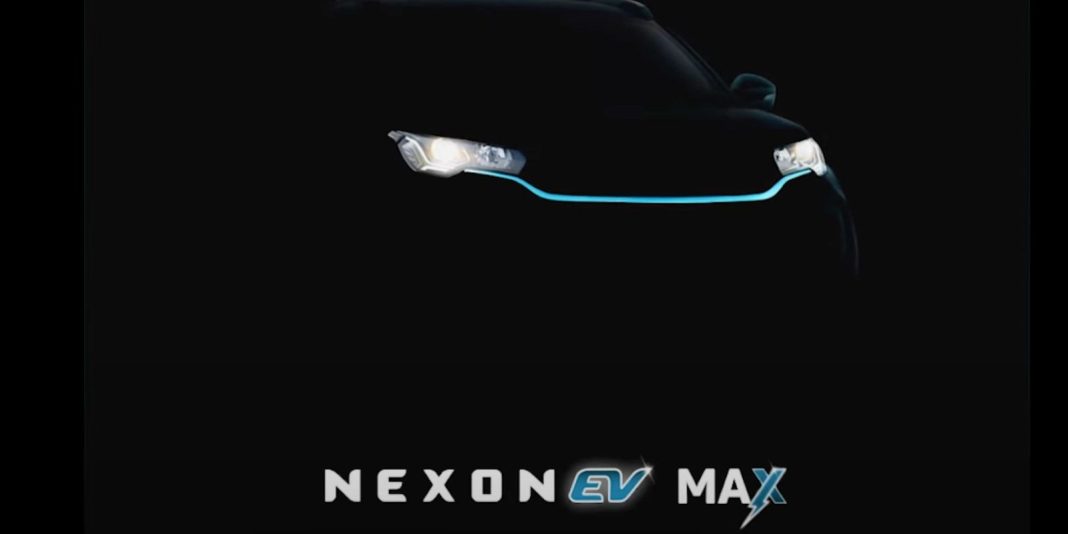
Tata Nexon EV Max will likely command a premium of around Rs. 3-4 lakh upon arrival on May 11 over the existing model
In a recent teaser video, Tata Motors revealed that the upcoming Nexon EV Max can do Mumbai to Pune and be back on a single charge and likewise mentioned routes such as Delhi to Kurukshetra, Chennai to Pondy, Bengaluru to Mysore, Gandhinagar to Vadodara and Dhanbad to Ranchi. Each of these journeys takes approximately 300-320 km back and forth.
The homegrown manufacturer appears to be targeting a real-world range of 300-320 km with the long-range Nexon as we previously suspected. It will sit at the top of the range and will boast a larger battery pack and the existing 30.2 kWh battery pack is only capable of 200-220 km approximate drive range in the real world conditions.
The 2022 Tata Nexon EV Max could appeal to a wide range of buyers who not just want to cover distances within the city but do relatively long journeys. The electric SUV will go on sale on May 11, 2022 and it will have a claimed driving range of 400 km on a single charge as it will be powered by a larger 40 kWh Li-ion battery pack.
The latest teaser video also shows the presence of a blue-accented front grille. We do expect only minor cosmetic changes to accompany the Nexon EV Max but more features will be part of the package. To accommodate the larger battery, the floor pan has been modified and it in turn consumes some of the bootspace as well.
It will likely get a more powerful 6.6 kW AC charger and it could be offered in addition to the existing 3.3 kW AC charger that takes close to 10 hours to replenish the battery to full capacity. Tata could target better overall efficiency thanks to the more effective selectable regen modes aiding in adjusting the intensity of the regenerative braking technology.
This should enable a longer battery range. As for the features, Electronic Stability Program, cruise control, park mode, air purifier, cooled front seats, etc could be made available to justify the likely price increase of Rs. 3-4 lakh and to differentiate itself from the regular model. It will be sold alongside the existing model and will compete against the recently facelifted MG ZS EV and Hyundai Kona Electric.
